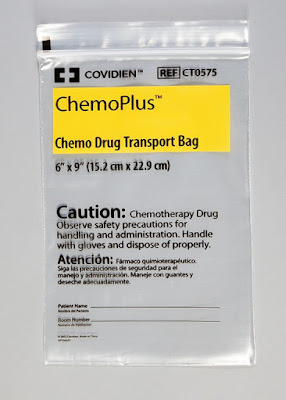I'm still here Myeloma. You're still trying to get me to succumb. But I'm not going to, so there!
I've always been a record keeping, sentimental data collecting geek. I still write important milestones down on a physical paper calendar, and probably always will, no matter how cool technology becomes. I've always written down sentimental important personal and family milestones on some sort of paper calendar. Looking back, I'm really glad I was able to record a bit of my July 2010 Stem Cell Transplant journey via this blog and also my trusty old fashioned paper calendar. I didn't blog in as much detail in the beginning. I wish I had, but I didn't, because I felt pretty crummy 6 years ago this month. Really really crummy! Also, I was new to blogging and I just didn't detail all my "private thoughts" out there in cyberspace as I do now LOL. I'm a different person now, then I was pre myeloma diagnosis.
This cancer journey changes you. Battling Myeloma for 6.7 years changes you. Treating and surviving cancer changes you. Staring death in the face every day, every treatment, every blood test result, changes you. I don't feel so private about my private journey any more. I feel so many can learn from us Myeloma-Veterans. I've learned so much and benefited so much from from all of Myelomaville's postings out there. I so appreciate everyone telling their whole story, detailing their medications and treatments, their blood status numbers, who they are and how they deal with Myeloma. Who we are beyond Myeloma is also so interesting. We all have so much in common regarding our Myeloma journey, that blogging about our crazy medical details, unwanted side effects, aches and pains, life challenges, treatment side effects and (of course) our GI symptoms is common... and sadly funny. We really are a remarkable bunch of warriors, battling this "invisible" monster that is trying to do us in. Writing to all of you, about my struggles and successes, is just cathartic.
Thank you paper calendar for reminding me that 6 years ago today, July 26, 2010, I bit the scary medical bullet and accepted a Picc Line to replace all the dysfunctional individual hand and arm IV lines, that blew up every other day due to the intensity of all the zillions of antibiotic treatments from my septic Hickman Catheter. Thank you paper calendar for reminding me that my Emergency Bedside Surgery to remove my horribly infected Hickman Catheter was July 14, 2010. Thank you paper calendar for reminding how sick I became after my immune system plummeted to zero from the intensity of Melphalan chemo. Thank you paper calendar for reminding me of how much I didn't and couldn't write down, because of how sick I was, how awful I felt and how I didn't have much energy, of much of me left at all. Minuscule energy just to survive and do basic tasks was all I could muster July 2010.
Thank you paper calendar for reminding me that I was released from City of Hope hospital on July 28, 2010. Thank you paper calendar for reminding me of my month long battle to survive my Autologous Stem Cell Transplant. Survive I did Myeloma, because here I am, blogging 6.7 years later.
I'm a sentimental hoarder in so many ways, and I'm glad I am. I have boxes and boxes, files and files of all my Myeloma paperwork and records dating back to December 2009. Yes I view everything online, and actually that's my preference. But I still like the physical paper version too. I have all my lab results and treatment receipts organized in zip lock bags with monthly dates. I just like that I can look at the paper results when I want too. I like having the symbolism of my paperwork in little plastic "hazardous chemotherapy" caution bags that Revlimid was mailed in. Now on Kyprolis, I just use regular zip lock bags.. but once in a while... I have "acquired" one of these gems... sshhh...
Ok, it's late and I am waning ... I will finish posting tomorrow. My recent labs are surprising...
As always, I cannot believe I am on this journey, and I cannot believe that Myeloma has not just disappeared from my life... but when I am tired and weak, always thirsty, have crazy side effects, and cannot do 3/4 of the things I did pre 2008, and I go to chemotherapy 2x per week, 3 weeks per month... I realize I do have incurable cancer.
CHECK BACK and I will finish my story, AND POST MY CURRENT IgA and M Protein results. Interesting... not happy, surprising... and did I mention... I did accept beginning the higher dose of Kyprolis??
Thank you so much for reading and caring!!!
CHECK BACK... I'LL BE BACK!!
In the meantime, read these great articles:
http://www.myelomacrowd.org/myeloma-101-proteasome-inhibitors-work/
http://www.myelomacrowd.org/myeloma-101-more-on-protease-inhibitors-velcade-kyprolis-ninlaro-how-they-help-combat-myeloma/
How you help us you crazymaking Dexamethasone!




No comments:
Post a Comment